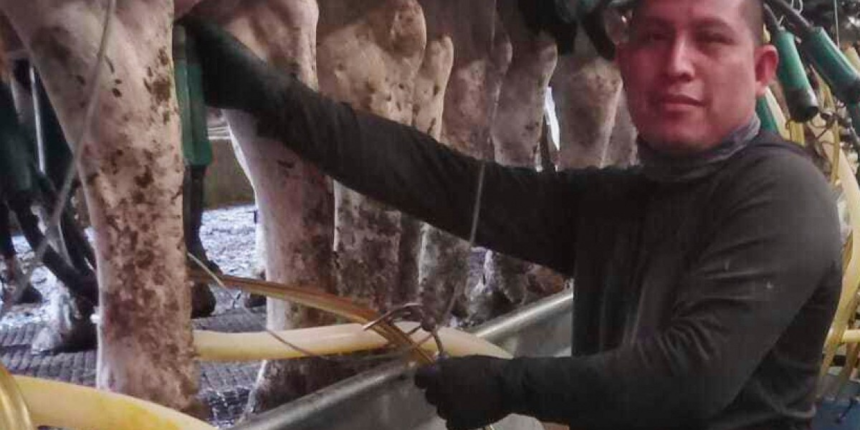After six 12-hour shifts milking cows, José Molina-Aguilar’s lone day off was hardly relaxing.
“I saw through the window of the house that immigration were already there, inside the farm, and that’s when they detained us,” he said in a recent interview. “I was in the process of asylum, and even with that, they didn’t respect the document that I was still holding in my hands.”
Four of the workers were swiftly deported to Mexico. Molina-Aguilar, released after a month in a Texas detention center with his asylum case still pending, is now working at a different farm and speaking out.
“We must fight as a community so that we can all have, and keep fighting for, the rights that we have in this country,” he said.
The owner of the targeted farm declined to comment. But Brett Stokes, a lawyer representing the detained workers, said the raid sent shock waves through the entire Northeast agriculture industry.
“These strong-arm tactics that we’re seeing and these increases in enforcement, whether legal or not, all play a role in stoking fear in the community,” said Stokes, director of the Center for Justice Reform Clinic at Vermont Law and Graduate School.
Nearly two-thirds of all milk production in New England comes from Vermont, where more than half the state’s farmland is dedicated to dairy and dairy crops. There are roughly 113,000 cows and 7,500 goats spread across 480 farms, according to the Vermont Agency of Agriculture, Food and Markets, which pegs the industry’s annual economic impact at $5.4 billion.
That impact has more than doubled in the last decade, with widespread help from immigrant labor. More than 90% of the farms surveyed for the agency’s recent report employed migrant workers.
Hundreds of Bernardo’s supporters showed up for her most recent check-in with immigration officials.
“It’s really difficult because every time I come here, I don’t know if I’ll be going back to my family or not,” she said after being told to return in a month.
Like Molina-Aguilar, Rossy Alfaro also worked 12-hour days with one day off per week on a Vermont farm. Now an advocate with Migrant Justice, she said the dairy industry would collapse without immigrant workers.
“It would all go down,” she said. “There are many people working long hours, without complaining, without being able to say, ‘I don’t want to work.’ They just do the job.”









